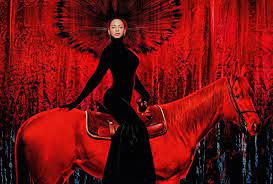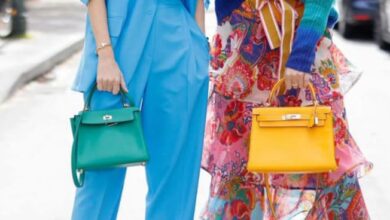Vogue: More Than Just a Fashion Magazine

Vogue: More Than Just a Fashion Magazine
When people hear the word Vogue, they often think of the iconic fashion magazine that has defined style for decades. However, the term carries both cultural and linguistic significance, making it more than just a publication.
What Does “Vogue” Mean?
The word vogue originates from the French word voguer, meaning “to sail” or “to be in motion.” Over time, it came to represent something that is “in fashion” or “popular at a particular time.” In modern English, when something is “in vogue,” it means it is trendy, stylish, and widely admired.
Vogue Magazine: A Fashion Powerhouse
First published in 1892, Vogue began as a weekly newspaper in the United States. Today, it is one of the most influential fashion magazines in the world, with editions in multiple countries. It is known for:
- High Fashion Coverage: Showcasing runway trends, designer collections, and couture.
- Cultural Influence: Highlighting art, photography, beauty, and lifestyle.
- Iconic Covers: Featuring top models, celebrities, and cultural figures that shape the global fashion narrative.
The Cultural Impact of Vogue
Vogue has gone beyond being a magazine—it is a cultural institution. Some key contributions include:
- Promoting Diversity: In recent years, Vogue editions have featured models of different ethnicities, sizes, and backgrounds.
- Empowering Voices: Articles often highlight social issues, women’s empowerment, and creative industries.
- Setting Trends: From makeup techniques to seasonal clothing, Vogue often sets the standard for what becomes popular worldwide.
Vogue Beyond Fashion
Interestingly, the word vogue is also used in dance and music culture. “Voguing,” a dance style born from the LGBTQ+ ballroom scene in New York, became globally recognized thanks to Madonna’s hit song Vogue in 1990. This style emphasizes dramatic poses, fashion-like movements, and self-expression.
Why Vogue Still Matters Today
In an age of social media and fast fashion, one might wonder why Vogue still holds influence. The answer lies in its credibility, storytelling, and authority. While Instagram and TikTok trends change overnight, Vogue continues to serve as a reference point for authentic, curated, and globally respected fashion content.
Conclusion
The word vogue symbolizes style, popularity, and cultural influence. Whether referring to the legendary magazine, the evolving dance style, or simply something “in fashion,” it continues to shape the way we view trends and identity. From glossy covers to digital platforms, Vogue remains a symbol of elegance and relevance.
FAQ About Vogue
Q1. What does the word “vogue” mean?
The word vogue means something that is in fashion, stylish, or popular at a certain time. It comes from the French word voguer, meaning “to sail” or “to be in motion.”
Q2. What is Vogue magazine famous for?
Vogue magazine is one of the most influential fashion publications in the world. It is famous for its high-fashion photography, trend-setting articles, celebrity covers, and cultural commentary.
Q3. Who is the editor of Vogue magazine?
The most well-known editor is Anna Wintour, who has been the Editor-in-Chief of American Vogue since 1988. However, each international edition of Vogue has its own editor.
Q4. Is Vogue only about fashion?
No. While Vogue focuses heavily on fashion and beauty, it also covers art, culture, lifestyle, and social issues, making it a well-rounded cultural magazine.
Q5. What is “voguing”?
Voguing is a dance style that emerged from the LGBTQ+ ballroom culture in New York during the 1980s. It involves striking dramatic poses, inspired by fashion models, and became world-famous after Madonna’s song Vogue.
Q6. Why is Vogue still relevant today?
Vogue remains relevant because it combines tradition with modernity. It continues to showcase global fashion trends while addressing diversity, empowerment, and cultural change.



